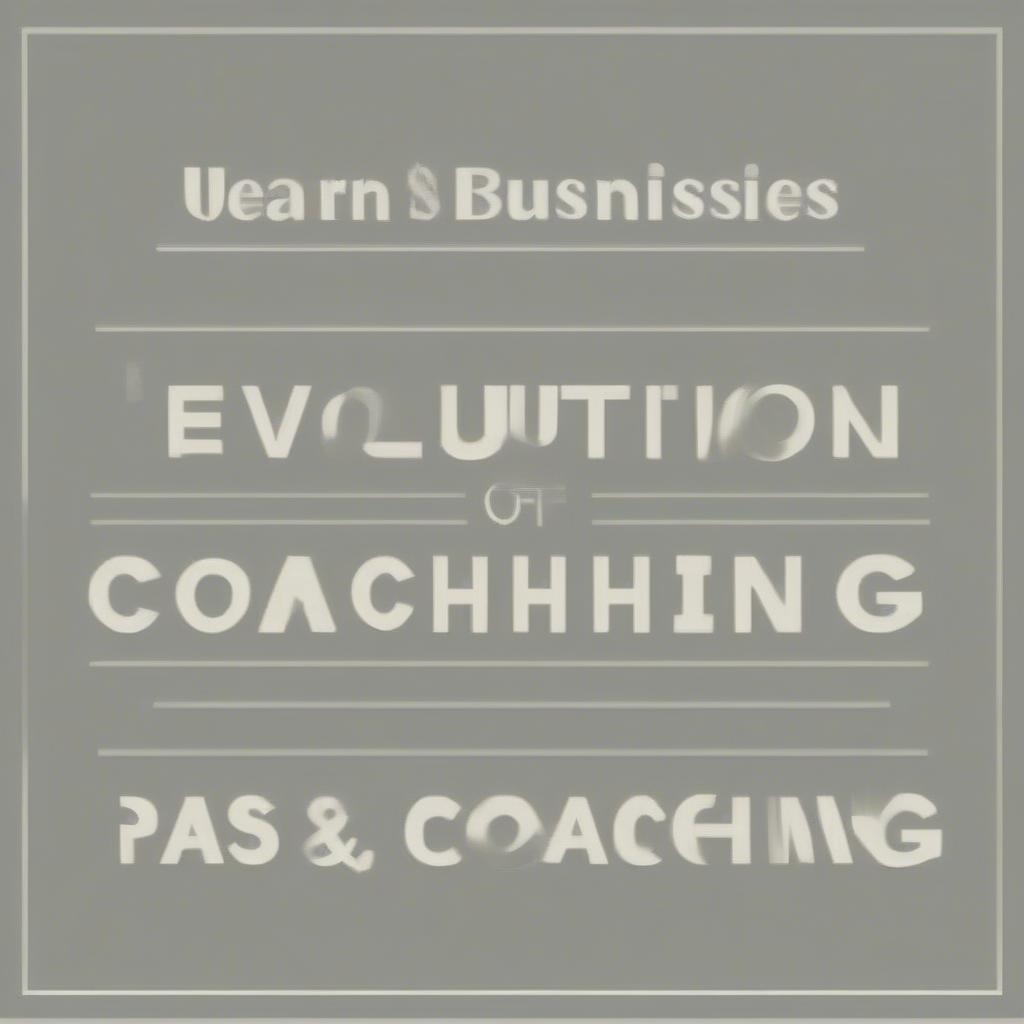
Choosing your coaching niche selection is the bedrock upon which a successful and fulfilling coaching practice is built. It’s not just about picking a topic you like; it’s about identifying a specific area where your skills, passions, and the needs of your target market intersect. This article will guide you through the crucial steps of finding your ideal coaching specialization, ensuring your business thrives and you make a genuine impact.
Why is a Niche So Important for Coaches?
Before we dive into how to choose your niche, let’s explore why it’s so vital. Many new coaches feel tempted to offer a broad range of services to appeal to everyone. However, this approach often leads to:
1. Overwhelm and Burnout
Trying to be a jack-of-all-trades means you’re constantly switching gears and adapting to diverse client needs. This can lead to burnout and make it hard to maintain the quality of your coaching.
2. Marketing Struggles
When your coaching offering is too broad, it becomes much harder to market effectively. Who exactly are you trying to reach? What specific problem are you solving? Without a clear focus, your marketing message will become diluted and ineffective.
3. Difficulty Building Expertise
Mastery comes from deep, concentrated study and practice. Trying to be an expert in too many areas makes it difficult to achieve a true level of proficiency in any of them. Niche focus allows you to hone your skills and become a recognized authority in your chosen field.
4. Higher Client Acquisition Cost
Without a niche, you’ll need to cast a wide net with your marketing efforts. This means investing more time and money to reach fewer potential clients. With a focused niche, you can target your efforts on a smaller, more receptive audience, saving valuable resources.
5. Lower Perceived Value
When you offer coaching on too many things, clients may perceive your services as less valuable. A specialist is often seen as more skilled and knowledgeable than a generalist. By focusing on a specific niche, you can command higher prices and attract higher-paying clients.
6. Lack of Clarity and Purpose
Coaching without a niche can feel directionless. Choosing a niche aligns your work with your passion, provides direction, and gives you a stronger sense of purpose.
In essence, a coaching niche selection isn’t about limiting yourself; it’s about focusing your efforts and creating a powerful brand that attracts your ideal clients.
Identifying Your Ideal Coaching Specialization: A Step-by-Step Guide
Now, let’s get into the practical steps of finding your ideal coaching specialization. This is a journey of self-discovery combined with market research. Here’s how you can navigate this process:
Step 1: Introspection: Understanding Your Passion and Skills
Before looking outward, you must first look inward. What truly lights you up? What are you naturally good at? Consider the following:
1. Your Passion
- What topics could you talk about for hours? What are you genuinely excited about, and what do you read, watch, or learn about in your spare time?
- What do you enjoy teaching or explaining to others? Think about conversations where you naturally gravitate towards helping people in a particular area.
- What kind of impact do you want to make in the world? What problems do you care deeply about?
- Examples: Do you get energized by empowering women, helping people manage their finances, improving leadership skills, or fostering creative expression?
2. Your Skills and Experience
- What are you exceptionally good at? Don’t underestimate your unique talents, even those you may take for granted.
- What training, certifications, or expertise do you have? Consider your formal education as well as life experiences.
- What do people often seek your advice or help with? Pay attention to the questions people ask you regularly; they might point towards a natural coaching strength.
- Examples: Are you a skilled communicator, a master of productivity, a gifted problem-solver, or an expert in a specific industry?
3. Mapping the Intersection
- Where do your passions and skills overlap? This is the sweet spot where your coaching practice will feel most natural and rewarding.
- Brainstorm: List all the potential areas where your passion and skills align. Don’t filter yourself at this stage; simply write everything down.
Step 2: Market Research: Identifying Your Target Market
Now that you have a list of potential niches, it’s time to analyze whether there’s a real market for your offerings.
1. Identifying Potential Clients
- Who are you excited to work with? Think about demographics, professional backgrounds, personality types, and the specific needs they might have.
- What problems do they struggle with? Your niche should address a real pain point for your target market.
- What are their goals and aspirations? How can you help them achieve their desired outcomes?
- Examples: Are you drawn to helping entrepreneurs, corporate professionals, stay-at-home parents, creative artists, or individuals in career transition?
2. Assessing Market Demand
- Are there other coaches in your potential niche? If yes, this validates the market. No one would be there if no one was looking for it.
- Are there a large number of people looking for coaches in your potential niche Research if enough people are looking for a coach in that niche. You can use platforms like Google trend to check for demand.
- What are your potential clients currently doing to solve their problems? This can reveal opportunities to offer a better solution through your coaching.
- Are there unmet needs in this market? Could you fill a gap that others haven’t addressed?
- Research Tools: Use Google Trends, social media groups, and online forums to gauge demand and understand the challenges your potential clients face.
3. Evaluating Competition
- Who are your main competitors? What are they offering, and how can you differentiate yourself?
- What are their strengths and weaknesses? Identify areas where you can provide superior value.
- Look for opportunities to position your unique skills or approach: Don’t be afraid to be different!
4. Example Market Research
- Let’s say your passion lies in helping people overcome creative blocks and you’re skilled in creative problem-solving. Your market research might reveal:
- Target Market: Writers, artists, designers, and entrepreneurs struggling with creative stagnation.
- Problems: Lack of inspiration, procrastination, self-doubt, and fear of failure.
- Goals: Produce high-quality creative work consistently, overcome limitations, and boost confidence.
- Competition: While there are creative coaches, many don’t specifically address procrastination and self-doubt. This is your unique selling point.
- Market Demand: Online communities and forums show people actively seeking solutions for these issues.
Step 3: Defining Your Coaching Niche
Once you’ve done your introspection and market research, you can start narrowing down your focus.
1. Choose a Specific Target Market
- Who are your ideal clients? Choose a niche that excites you and has a real need for your expertise.
- Get clear on their specific pain points and desired outcomes: Your niche will be even more effective if you are speaking to a specific problem
- Don’t try to appeal to everyone: Focus your efforts.
2. Develop a Clear Value Proposition
- What unique benefits do you offer? What is the result that you offer?
- How will you help your clients achieve their goals? Be specific.
- Use a simple sentence to explain what you do: Example: "I help ambitious entrepreneurs overcome self-doubt and build thriving businesses"
3. Create Your Niche Statement
- Combine your target market and value proposition into a concise niche statement.
- Example: "I empower female entrepreneurs to overcome self-doubt and create a business that aligns with their passion."
- This statement will serve as your guiding star as you grow your coaching practice.
Step 4: Test and Refine Your Niche
The process of defining your niche is iterative. Don’t be afraid to test and refine your niche as you go.
1. Pilot Coaching Program
- Offer a pilot coaching program to a small group of clients in your target market.
- Gather feedback to refine your coaching process and offerings.
2. Track Your Results
- Monitor your clients’ progress and identify what’s working best.
- Make adjustments based on the results.
3. Stay Adaptable
- The coaching industry is constantly evolving, so be open to refining your niche as you grow and learn.
- Remember you don’t need to be perfect, being good and consistent is enough
Niche Examples: Inspiring Your Choices
Here are some examples of coaching niches to spark your creativity:
- Executive Coaching: Leadership development for C-suite professionals.
- Career Coaching: Helping individuals navigate career changes and advancement.
- Health and Wellness Coaching: Supporting clients in achieving their health goals.
- Relationship Coaching: Guiding individuals and couples to improve their relationships.
- Financial Coaching: Helping individuals manage their money and achieve financial goals.
- Life Coaching: Providing guidance and support for personal growth and fulfillment.
- Mindset Coaching: Helping people develop a positive and growth-oriented mindset.
- Parenting Coaching: Supporting parents in raising happy, healthy, and well-adjusted children.
- Creativity Coaching: Helping people unlock their creative potential and overcome creative blocks.
- Public Speaking Coaching: Helping people improve their communication and public speaking skills.
- Time Management and Productivity Coaching: Coaching individuals on managing their time and becoming more productive
- Business Coaching for Specific Industries: Example: Coaching for online entrepreneurs or creative businesses.
Benefits of a Well-Defined Coaching Niche
Choosing the right coaching niche selection is an investment that yields significant returns. Here are some of the benefits you can expect:
- Attract Your Ideal Clients: Your marketing will resonate with people who are a perfect match for your coaching services.
- Command Higher Fees: As a specialist, you can charge higher rates for your expertise.
- Increased Client Success: You’ll be better equipped to guide your clients to achieve their specific goals.
- Become a Thought Leader: As you deepen your expertise, you’ll gain recognition in your chosen niche.
- Boost Your Confidence: Focusing on a niche allows you to work in a way that feels authentic and fulfilling.
- Build a Stronger Brand: With a clear identity, you’ll be more visible in your industry.
- More Efficient Marketing: Targeted marketing is more effective and less costly than broad-based campaigns.
- More Rewarding Work: You’ll be doing work that you are truly passionate about, impacting more people in your field.
- Faster Business Growth: A focused approach is more likely to yield faster growth in your coaching practice.
- Increased Job Satisfaction: Working with your ideal clients in a field you are passionate about provides increased job satisfaction
Learn Business: Supporting Your Coaching Practice Growth
At Learn Business, we understand the challenges of starting and scaling a coaching practice. That’s why we offer comprehensive guidance, resources, and tools tailored specifically to help coaches succeed. We know that a great coaching niche selection and clear target market are paramount to building a successful practice. We support coaches by offering the following:
Guidance and Mentorship
- Expert advice on choosing your coaching niche selection.
- Support in defining your target market and developing your unique value proposition.
- Mentorship to refine your coaching skills and grow your practice.
Templates and Resources
- Pre-made coaching templates that save you time and effort.
- Marketing templates to attract your ideal clients.
- Business planning templates to help you map out your goals and objectives.
- Client management templates to streamline your operations and provide a great client experience.
- Sales scripts to help you sell confidently.
Training and Development
- Workshops and courses that help coaches refine their skills.
- Access to a supportive community of like-minded coaches.
- On-demand training resources that fit your schedule and allow you to learn at your own pace.
- Up-to-date information on the latest trends and best practices in the coaching industry.
Learn Business is more than just a resource; it’s your partner in building a thriving coaching practice. We help you navigate the complexities of starting and growing your business with practical support and expert guidance. We know that each business has its own specific needs. We create templates that are customizable and easy to use, ensuring they align perfectly with your brand and goals. So you don’t need to create new documents or marketing materials from scratch. We are committed to empowering coaches to reach their full potential by providing high-quality resources and personalized support.
Conclusion: Embracing Your Unique Path
Choosing the perfect coaching niche selection is a deeply personal and strategic decision. It requires self-reflection, market analysis, and a commitment to serving your ideal clients. By following the steps outlined in this article and leveraging the resources offered by Learn Business, you can build a coaching practice that is both profitable and profoundly fulfilling. Don’t be afraid to embrace your unique passions and skills. When you find the right niche, your passion will shine through and attract the people you are meant to serve. Remember that a clear niche, a well-defined target market, and a unique value proposition are essential for success in the coaching industry. Now, go out there and create the coaching practice of your dreams!



Leave a Reply